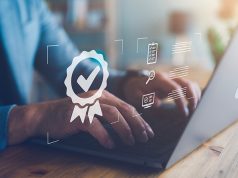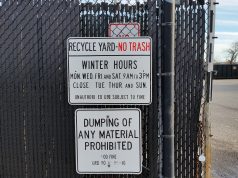Larry Wittig of Pennsylvania has worked in the field of education for many decades. He has mastered the art of effective study habits and believes this is a powerful key to wielding success. In the following article, Larry Wittig unveils the time-tested methods that have propelled countless individuals towards academic triumph, with an effective approach to learning.
No parent wants to see their kid having a hard time at school. And no student wants to face difficulty in learning lessons.
And with the classes of 2023 resuming, an exciting school year awaits.
But we all know that not every student will breeze through classes – 1 in 59 students have a learning disability. Moreover, Pew Research stated that 65% of teens feel pressured to get good grades.
However, disabilities and pressures shouldn’t keep a student from achieving academic success – even if these were a factor, there are ways to modify their studying habits for better academic performance.
Below, Larry Wittig talks more on studying strategies – and how effective they can be.
Larry Wittig Says to Write a Homework Schedule
Home is everyone’s haven. However, some students avoid thinking about anything school-related once they’re home. Unfortunately, this is an escapism habit.
The more students avoid school responsibilities, the more stressed they will be when left with no choice but to do schoolwork.
Larry Wittig says to prevent this, upon arrival from school, write down all the homework due the next day. Prioritize the most challenging subject to the easiest.
Remember: studying is fundamental. And it doesn’t stop just because there isn’t a teacher around.
But even after establishing the routine of writing a to-do list (and executing the tasks), developing healthier habits is also essential.
Avoid Using the Phone Before Bed
Using the phone isn’t bad, per se. However, when it becomes a student’s primary source of entertainment and communication, it can prevent them from having a good quality sleep.
The solution is simple: set a phone use limit. Ideally, it should be 2 hours before bed – as this is the time when someone should start unwinding.
Larry Wittig also explains that the later a person stays up, the more difficult and stressful it is to wake up on time – and get to school on time.
Furthermore, a rushing student often doesn’t have enough time to have breakfast.
Eat a Healthy Breakfast
People have varying opinions on what counts as a healthy breakfast. But the consensus is it must be balanced – regardless of the choices of protein and carbohydrates.
Larry Wittig notes that there’s no need to feel bad about having cereals for breakfast – milk contains protein, and cereals contain carbohydrates.
PB&J? Peanut butter is packed with protein, bread is a healthy source of carbs, and jelly is made from fruits.
But make sure not to eat too much, as it can cause drowsiness. Breakfast should be enough to fuel the mind and body on school mornings – not do the opposite.
But if a healthy breakfast still doesn’t help improve school performance, maybe people can.
 Don’t be Afraid to Ask
Don’t be Afraid to Ask
Rarely did anyone ever ace all their subjects. Therefore, it’s normal to perform poorly in other subjects and lessons. But the subject that may seem difficult is probably easier for others. If that’s the case, ask for help.
Larry Wittig says that other than fellow students, however, the teachers and professors are there for the exact reason: to help students learn – it’s their job to inform their students of new information. And if someone is having a hard time understanding their lesson, they’d willingly guide them.
The teachers would even appreciate it – as one student is eager to take the time and make the effort to learn.
If it’s still difficult to take in, despite the tutoring, it’s time to self-study.
Create Notes and Comments on Difficult Questions
Most students would agree that tests are dreadful.
How is it possible to even learn all this information?
It’s indeed overwhelming – especially when there’s a lot of memorization needed. But to make it easier to remember them, write down personal comments and notes.
Tip:
Larry Wittig says to try relying on mnemonic (or memory) devices. It’s a learning technique to help people remember information better. Create acronyms, associate the words with familiar people or objects, or try rhyming them with other things that are similar or possess the same characteristics.
Here are a few mnemonic examples:
| Subject | Lesson | Mnemonic Formula |
|---|---|---|
| Math | PEMDAS: Parenthesis Exponents Multiplication Division Addition Subtraction |
Please Excuse My Dear Aunt Sally |
| Music | Order of the treble clef notes: E, G, B, D, F | Every Good Boy Does Fine |
| Science | Order of the planets in the solar system: Mercury Venus Earth Mars Jupiter Saturn Uranus Neptune |
My Very Excellent Mother Just Served Us Nachos |
Don’t be afraid to get creative with mnemonics. They’re not meant to be universal – they just need to be memorable.
Conclusion
Larry Wittig explains that school shouldn’t be nerve-racking. These establishments provide essential knowledge that will be useful throughout people’s lives. However, it doesn’t mean that learning will be effortless, either. Fortunately, a little lifestyle change can boost school performance.
Who knows? These simple changes can even contribute to a student’s academic excellence – excellence that can place them on the honor roll, or contribute to a good GPA, or perhaps even a scholarship.



 Don’t be Afraid to Ask
Don’t be Afraid to Ask


